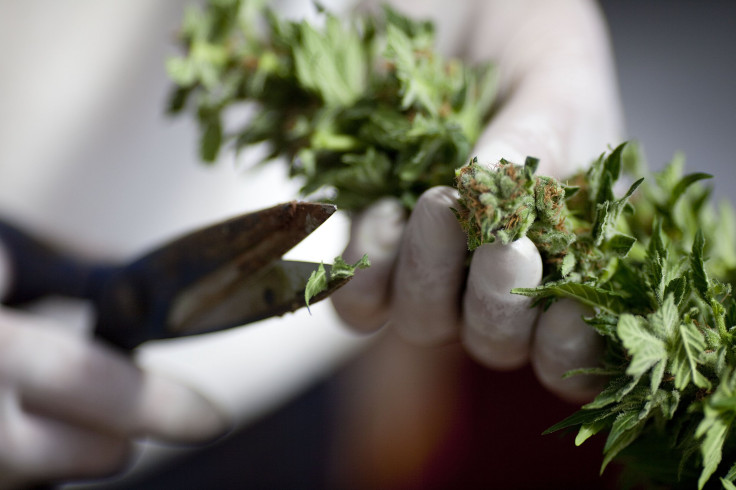This Marijuana Stock Could Soon Be The Fourth-Largest Producer In Canada
In case you haven't noticed, things are about to get really exciting with our neighbor to the north.
Canada has done it. Both the Senate and House of Commons have passed the Cannabis Act (officially bill C-45), and, having moved to royal assent, a legalization date of Oct. 17, 2018, has been set. Very soon, recreational marijuana will be completely legal in Canada.
This article originally appeared in The Motley Fool.
As for the industry, it should create a windfall of growth. When fully ramped up, adult-use weed could add $5 billion or more in annual sales. When combined with the economies of scale that larger growers are expecting to recognize as they expand their operations, it could make growing, processing, distributing, and selling marijuana very profitable.
With dollar signs dancing in their heads, the management teams of Canada's growers have been angling to expand their production as quickly as their balance sheets will allow. In fact, this capacity expansion has been so fluid that every effort I've made to accurately portray production totals for the top growers tends to be obsolete within a matter of days. This is because Canada's biggest growers keep announcing acquisitions, partnerships, and/or organic projects that add to their peak production capacity.
This Newly Public Pot Stock Is Still Growing
Just a week ago, another of Canada's projected top producers, The Green Organic Dutchman (NASDAQOTH:TGODF), announced a strategic partnership that'll result in an expansion to its capacity, ultimately putting it on track to potentially become Canada's fourth-largest producer.
Mind you, the math that allows me to make this statement assumes that MedReleaf, which is currently expected to produce 140,000 kilograms of cannabis a year, does indeed get purchased by Aurora Cannabis in an all-share deal for approximately $2.5 billion. If that's the case, then Aurora Cannabis at 570,000 kilograms of peak production would be followed by Canopy Growth Corp. at roughly 500,000 kilograms, Aphria at 255,000 kilograms, and then The Green Organic Dutchman at an estimated 130,000 kilograms, annually.
TGOD, as The Green Organic Dutchman is known, announced on June 14 that it was partnering with Epican Medicinals in Jamaica to construct a 125,000-square-foot facility that'll be used to cultivate high-quality strains for the Jamaican and international markets. This facility is expected to produce up to 14,000 kilograms of cannabis a year. This production comes on top of a projected 102,000 kilograms annually from its flagship 820,000-square-foot facility in Quebec and an additional 14,000 kilograms from its Ontario Project, which spans 150,000 square feet of growing space.
What's noteworthy is that TGOD may just be getting started with regard to expansion. Said CEO Robert Anderson:
This represents the first of many strategic partnerships TGOD intends to execute in the coming months. Our value-added approach taken in this investment will set an international M&A framework for capital investment, transfer of knowledge, and sector expertise. We will continue to evaluate international opportunities that will assist us in executing our business plan to become the world's largest cannabis brand.
It's also worth pointing out that since TGOD is the largest weed IPO in history, it's certainly raised enough capital to explore new opportunities.
Unique But Expensive
Investors should also understand that TGOD is unique in its efforts to use genetic breeding to focus on new cannabis strains and cannabinoids in its cultivation process. In doing so, the company aims to improve existing strains, making them better suited for their growing environment, while also reducing crop loss by improving pest and disease resistance. TGOD is even attempting to reduce the flowering duration, which would have a direct impact on margins and crop turnover.
In addition to somewhat reinventing the dried cannabis growth process, TGOD also recently announced plans to create a 40,000-square-foot facility for product development and pilot manufacturing for its beverage industry initiatives. That's right, TGOD wants to create novel beverages that are infused with cannabinoids (primarily cannabidiol) for domestic and international markets.
While these unique approaches to its product line and growth could allow it to stand out, or perhaps even charge a premium for its products, investors also need to realize the risks involved with TGOD. Namely, that it had no revenue to report through Sept. 30, 2017, according to its long-form prospectus, and its need to construct facilities and partner with other growers could mean that it brings its cannabis to market at a later date than its peers. In doing so, TGOD could miss out on lucrative long-term supply deals, making it tougher to find a home for all of its production.
There are also industrywide concerns about oversupply. No one is entirely sure what to expect when the proverbial green flag waves, meaning growers are simply expanding their capacity, crossing the fingers, and hoping international markets will gobble up any domestic oversupply. If that doesn't happen, the per-gram price of cannabis could tumble, leaving companies like TGOD in a precarious position.
Ultimately, The Green Organic Dutchman offers a unique and fast-growing business model, but is exceptionally pricey given that it's still a ways away from generating the bulk of its annual production.
Sean Williams has no position in any of the stocks mentioned. The Motley Fool has no position in any of the stocks mentioned. The Motley Fool has a disclosure policy.




















